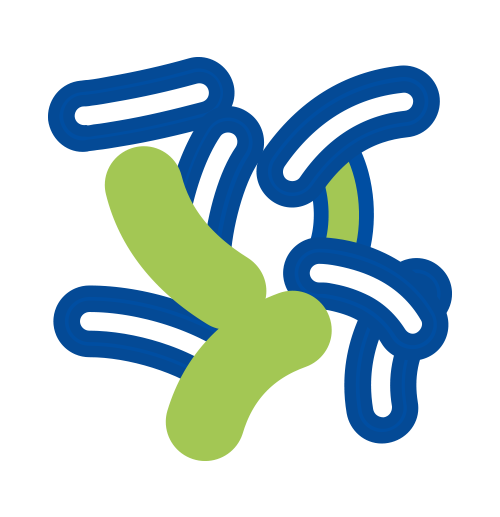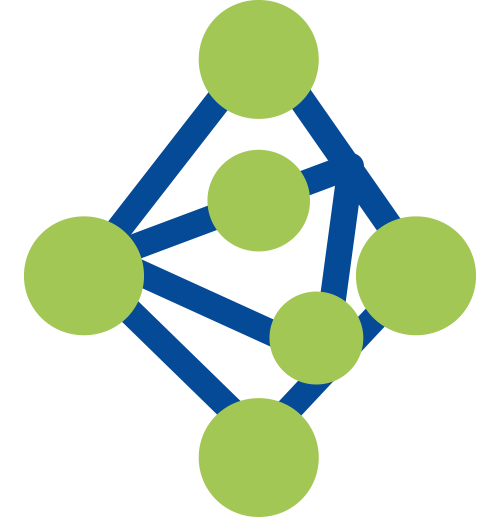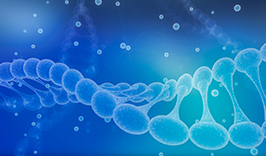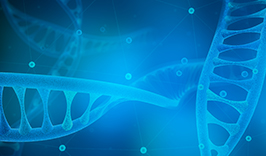2023. 01NGS
Clinical features and molecular characterization of Chinese patients with FKBP10 variants
Zhijia Tan, Hiu Tung Shek, Peikai Chen, Zhongxin Dong, Yapeng Zhou, Shijie Yin, Anmei Qiu, Lina Dong, Bo Gao, Michael Kai Tsun To
Full Text
Abstract
Background
Osteogenesis imperfecta (OI) is a group of rare skeletal dysplasia. Long bone deformity and scoliosis are often associated with progressively deforming types of OI. FKBP65 (encoded by FKBP10, OMIM *607063) plays a crucial role in the processing of type I procollagen. Autosomal recessive variants in FKBP10 result in type XI osteogenesis imperfecta.
Methods
Patients diagnosed with OI were recruited for a genetic test. RT-PCR and Sanger sequencing were applied to confirm the splicing defect in FKBP10 mRNA with the splice-site variant. The bone structure was characterized by Goldner's trichrome staining. Bioinformatic analyses of bulk RNA sequencing data were performed to examine the effect of the FKBP10 variant on gene expression.
Results
Here we reported three children from a consanguineous family harboured a homozygous splice-site variant (c.918-3C > G) in FKBP10 intron and developed long bone deformity and early onset of scoliosis. We also observed frequent long bone fractures and spinal deformity in another 3 OI patients with different FKBP10 variants. The homozygous splicing variant identified in the fifth intron of FKBP10 (c.918-3C > G) led to abnormal RNA processing and loss of FKBP65 protein and consequently resulted in aberrant collagen alignment and porous bone morphology. Analysis of transcriptomic data indicated that genes involved in protein processing and osteoblast differentiation were significantly affected in the patient-derived osteoblasts.
Conclusion
Our study characterized the clinical features of OI patients with FKBP10 variants and revealed the pathogenesis of the c.918-3C > G variant. The molecular analyses helped to gain insight into the deleterious effects of FKBP10 variants on collagen processing and osteoblast differentiation.
 NGSHybridization Capture DNA Probe QuarStar Human All Exon Probes 4.0 (Tumor) QuarStar Human All Exon Probes 4.0 (Standard) QuarStar Liquid Pan-Cancer Panel 3.0 QuarStar Pan-Cancer Lite Panel 3.0 QuarStar Pan-Cancer Fusion Panel 1.0 QuarStar Pan Cancer Panel 1.0 Hybridization Capture RNA Probe QuarXeq Human All Exon Probes 3.0 HRD panel Library Preparation DNA Library Preparation Kit Fragmentation Reagent mRNA Capture Kit rRNA Depletion Kit QuarPro Superfast T4 DNA Ligase Hybridization Capture QuarHyb Super DNA Reagent Kit QuarHyb DNA Plus 2 Reagent Kit QuarHyb DNA Reagent Kit Plus QuarHyb One Reagent Kit QuarHyb Super Reagent Kit Pro Dynegene Adapter Family Dynegene Blocker Family Multiplex PCR QuarMultiple BRCA Amplicon QuarMultiple PCR Capture Kit 2.0 PathoSeq 450 Pathogen Library Corollary Reagent Streptavidin magnetic beads Equipment and Software The iQuars50 NGS Prep System
NGSHybridization Capture DNA Probe QuarStar Human All Exon Probes 4.0 (Tumor) QuarStar Human All Exon Probes 4.0 (Standard) QuarStar Liquid Pan-Cancer Panel 3.0 QuarStar Pan-Cancer Lite Panel 3.0 QuarStar Pan-Cancer Fusion Panel 1.0 QuarStar Pan Cancer Panel 1.0 Hybridization Capture RNA Probe QuarXeq Human All Exon Probes 3.0 HRD panel Library Preparation DNA Library Preparation Kit Fragmentation Reagent mRNA Capture Kit rRNA Depletion Kit QuarPro Superfast T4 DNA Ligase Hybridization Capture QuarHyb Super DNA Reagent Kit QuarHyb DNA Plus 2 Reagent Kit QuarHyb DNA Reagent Kit Plus QuarHyb One Reagent Kit QuarHyb Super Reagent Kit Pro Dynegene Adapter Family Dynegene Blocker Family Multiplex PCR QuarMultiple BRCA Amplicon QuarMultiple PCR Capture Kit 2.0 PathoSeq 450 Pathogen Library Corollary Reagent Streptavidin magnetic beads Equipment and Software The iQuars50 NGS Prep System Primers and Probes
Primers and Probes RNA SynthesissgRNA miRNA siRNA
RNA SynthesissgRNA miRNA siRNA



 Gene Synthesis
Gene Synthesis Oligo Pools
Oligo Pools CRISPR sgRNA Library
CRISPR sgRNA Library Antibody Library
Antibody Library Variant Library
Variant Library


 Tel: 400-017-9077
Tel: 400-017-9077 Address: Floor 2, Building 5, No. 248 Guanghua Road, Minhang District, Shanghai
Address: Floor 2, Building 5, No. 248 Guanghua Road, Minhang District, Shanghai Email:
Email: 







